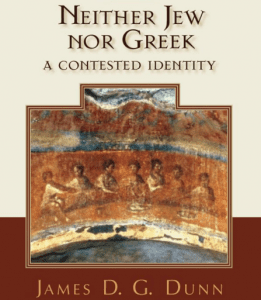Tom Wright belongs in a line of only a few noble UK scholars who have the capacity to write about complexities with clarity and simplicity, without turning the whole thing into some kind of limp populism. That line of UK scholars includes William Barclay and C.H. Dodd. I’d like to include C.F.D. Moule but I don’t know that he ever quite turned his pen toward the ordinary person. Still, Tom is the current version of the prose of Barclay and Dodd. Yet different, as they too were different.
 Tom Wright is proposing that next to our New Testament we should open Virgil’s The Aeneid and Josephus. Josephus is boilerplate for those who want to comprehend the Jewish context of earliest Christianity, but why Virgil? Simply put: Virgil provides the historical grounding myth of the Roman empire. He tells a story that comes to completion in none other than Julius Caesar, Octavian and Tiberius — in effect, the sons of god of Rome.
Tom Wright is proposing that next to our New Testament we should open Virgil’s The Aeneid and Josephus. Josephus is boilerplate for those who want to comprehend the Jewish context of earliest Christianity, but why Virgil? Simply put: Virgil provides the historical grounding myth of the Roman empire. He tells a story that comes to completion in none other than Julius Caesar, Octavian and Tiberius — in effect, the sons of god of Rome.
Here’s one way to put the claim of Tom Wright: to claim that Christianity, or whatever you want to call it, non-political is the worst sort of error. Jesus’ kingdom vision was front to back political, and it was a different kind of political, one that challenged the Roman representative power (Herod Antipas) and the priestly powers in Jerusalem.
So our question for today: What kind of politic did Jesus envision?
Many readers of this blog will know that Tom already has two books on Jesus, one a major tome called Jesus and the Victory of God, and the other one called The Challenge of Jesus. This new book, Simply Jesus (standing alongside Simply Christian) takes those two books, with some of his The Resurrection of the Son of God tossed in, to advance what he has already said and at the same time make those books even more accessible.
Tom Wright’s ruling metaphor in Simply Jesus is that Jesus stepped into a perfect storm.
That storm involved the steely eyes of the skeptical scholars on Jesus, the violent winds of the conservative traditionalist who wants nothing but classic theology, and one trying to write responsible history about Jesus (the tropical storm). This metaphor then is applied yet again to Jesus in his own world:
The powerful Roman empire with its military might and emperor worship, the classic story of Israel (the Exodus), and Jesus’ own claim that God was now in charge (the kingdom of God) with Jesus as God’s agent of change. The Romans had a retrospective eschatology, one that looked back to a golden age, while the Jews had a prospective eschatology, one that looked forward to freedom, justice and peace — when God stepped in finally to make that happen.
The strange mix in all of this, that made the conflict of Rome with Jews even more intense was Jesus’ peculiar claim that God was now at work. The claim was that God was to be King, God alone. When that God — and here he teases out the vision from sections in the Psalms and the Prophets — became King, a Davidic king would rule for God.
Jesus entering into Jerusalem on a donkey is precisely that moment when Jesus enacted that vision: God became King through Jesus.











